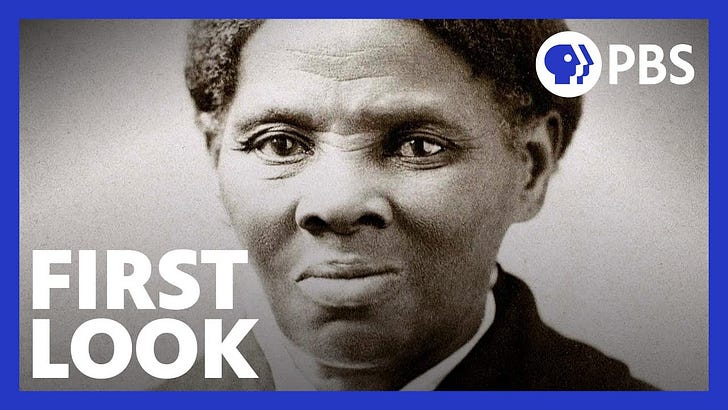Why Donald Trump Doesn't Want You To Know About 'Joe Turner's Come And Gone'
The history that comments on today's reality.

I have the honor of serving as board chair at the Portland Playhouse in Oregon, and after Donald Trump’s re-election, I was not confident about any previously approved grants from the National Endowment for the Arts. Unfortunately, my Cassandra-like predictions proved correct on Friday when the NEA withdrew and canceled grants to numerous arts organizations across the country. Portland Playhouse received the news that the NEA had withdrawn a $25,000 grant for a production of August Wilson’s Joe Turner’s Come and Gone just 24 hours before opening night.
The emails, sent from an address that doesn’t accept replies, stated, “The NEA is updating its grantmaking policy priorities to focus funding on projects that reflect the nation’s rich artistic heritage and creativity as prioritized by the president. Consequently, we are terminating awards that fall outside these new priorities.”
You really have to read this to believe it:
The NEA will now prioritize projects that elevate the Nation’s HBCUs and Hispanic Serving Institutions, celebrate the 250th anniversary of American independence, foster AI competency, empower houses of worship to serve communities, assist with disaster recovery, foster skilled trade jobs, make America healthy again, support the military and veterans, support Tribal communities, make the District of Columbia safe and beautiful, and support the economic development of Asian American communities. Funding is being allocated in a new direction in furtherance of the Administration’s agenda.
The administration isn’t promoting art but demanding propaganda. Does “make America healthy again” mean more pro-measles plays? The random diversity initiatives are obvious flim-flam, considering that the NEA is yanking funding for works by minority artists.
The Portland Playhouse building was once the Mt. Sinai Baptist Church in a historically Black neighborhood. The theatre’s mission includes offering a similar source of community and fellowship. It’s uncertain if America will celebrate true independence in 2026, but regardless, August Wilson remains one of the single greatest American playwrights whose work chronicles the Black American experience in the 20th Century. However, that history is not exclusive to Black people. It’s distinctly American history, one that’s rightly complicated. As President Andrew Shepherd said, “America is advanced citizenship. You’ve gotta want it bad, ‘cause it’s gonna put up a fight.” Wilson’s work documents that fight, that constant struggle for the birthright of all Americans, regardless of color. Yet, his stories are never burdened with despair but are joyful and uplifting.
That’s what Donald Trump doesn’t want you to see. Also, in fairness, there’s very little AI involved in Wilson’s work. There aren’t even robots.
‘I, too, sing America’
Joe Turner’s Come and Gone is not a story that advances a MAGA view of our shared history or current reality. It confronts the enslavement of Americans well after the Emancipation Proclamation. The story takes place in 1911 but its primary conflict is especially relevant today.
(Angela Bassett and Delroy Lindo starred in the 1988 Broadway production. Phylicia Rashad directed a 2013 production in Los Angeles starring Keith David. Watch below.)
Herald Loomis is a free American citizen who was nonetheless abducted, separated from his family, and forced to work in bondage for seven years. This was all perfectly legal at the time. He was the victim of the titular Joe Turner, who is based on the very real Joe Turney (also called Turner), brother of Pete Turney, the governor of Tennessee from 1893 to 1897. Joe transported Black prisoners from Memphis to the Tennessee State Penitentiary in Nashville, and he sold off many of them to convict farms along the Mississippi River.
The 13th Amendment banned slavery except “as a punishment for crime whereof the party shall have been duly convicted,” and that loophole was ruthlessly exploited. Once a citizen is declared a “criminal,” the state was free to enslave them. Black people faced extreme sentences for relatively minor offenses — up to five years hard labor for “stealing a farm animal or any property valued at $10 or more.”
However, Turney actively trapped Black men for his human trafficking enterprise. An “inside man” would set up a craps game to lure unsuspecting victims — the irony, of course, was that the Jim Crow system made it difficult if not impossible for many Black men to earn a stable living. The police would raid the games on cue and arrest the men, who’d have trials that were twisted performance art with prearranged outcomes. They were then turned over to Joe Turney. They’d labor in coal mines, sawmills, and turpentine camps. They laid railroad tracks and built levees, all without compensation. (As recently as 2010, a federal court has held that “prisoners have no enforceable right to be paid for their work.” It’s quite the business model.)
Historian Leon F. Litwack writes in his book Trouble in Mind: Black Southerners in the Age of Jim Crow, “[Turney] was reputed to have handcuffed eighty prisoners to forty links of chain. When a man turned up missing that night in the community, the word quickly spread, ‘They tell me Joe Turner’s come and gone.’ Family members were left to mourn the missing.”
W.C. Handy recounted this living horror story in the 1915 song “Joe Turner Blues.”
He come wid forty links of chain,
Oh Lawdy!
Come wid forty links of chain,
Oh Lawdy!
Got my man and gone.
(Watch below.)
‘I, too, am America’
Joe Turner’s Come and Gone addresses the indelible trauma of enslavement, a subject that is often overlooked and deliberately so. In an episode of Chelsea Handler’s 2016 series, Chelsea Does, a Confederate apologist callously compared enslaved human beings to farm equipment: “People were taken care of. Would you take a tractor that you just bought brand new and tear it up, misuse it? No, you’re going to take care of it, ’cause you just spent a pile of money on that. Those people produced their crops, worked their fields, so you’re not gonna mistreat something like that.”
But the enslaved weren’t “something.” They’re people, and freedom is the natural human condition. After all, a tractor or a piece of furniture won’t defy you, nor will it run away at the first opportunity. Slavery could only function through the deliberate and ongoing dehumanization of a people. That put every enslaved person in existential conflict with an evil institution. This conflict continued well past the passage of the 13th Amendment. It endures to this day.
Herald Loomis’s enslavement permanently traumatized him. The person we meet during the course of the play is possibly just a shadow of the man he was before Joe Turner came and went. The suave young Jeremy Furlow, born well after emancipation, and even the 11-year-old Reuben Mercer might eventually face similar fates as Loomis.
This is America’s past, as well as its sordid present. Donald Trump — himself a convicted felon and adjudicated rapist — has justified shipping people he’s deemed criminals to a Salvadoran mega-prison whose conditions are so harsh El Salvador’s own “justice” minister once said the only way out is in a coffin. Families have been broken apart, fathers separated from their children. Yet, according to 60 Minutes, 75 percent of the Venezuelan migrants the U.S. has sent to El Salvador don’t have criminal records.
The White House has gloated over the dehumanization of the prisoners. Department of Homeland Security Secretary Kristi Noem possibly committed a war crime (if we’re still keeping track) when she toured the prison and posed in front of a crowded cell of shirtless inmates, their tattooed bodies presented as “evidence” of crimes for which they never actually faced trial.
These are immigrants … for now, but Trump wants to extend this treatment to anyone he considers an undesirable. His dismissal of due process isn’t unprecedented. It’s Jim Crow governance.
That’s why Joe Turner’s Come and Gone doesn’t align with Trump’s “agenda.” How could it? Theatre at its best is an exercise in empathy. When an audience personally experiences Herald Loomis’s all-to human trauma, it’s harder to regale in the Trump administration’s active brutality.
Joe Turner’s Come and Gone, directed by theatre legend Lou Bellamy, plays at Portland Playhouse through June 8. Please consider donating what you can to independent, non-AI art.





White washing our history won’t make it go away. Authoritarian regimes always want to pretend like abuses never happened. Look at people erased from actual photographs in China.
As I’m sure you know but not everyone does, the white mania for preventing felons from voting even after they’ve served their sentence springs directly from the post-slavery enslavement you recount.